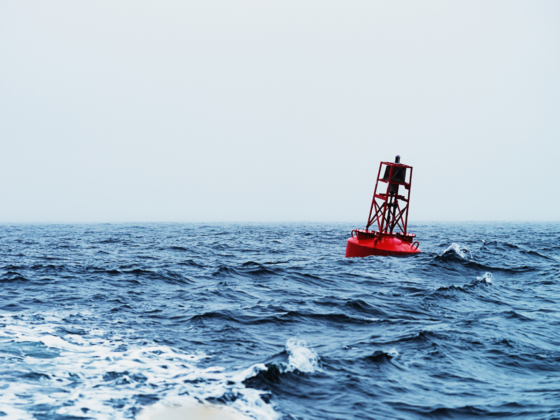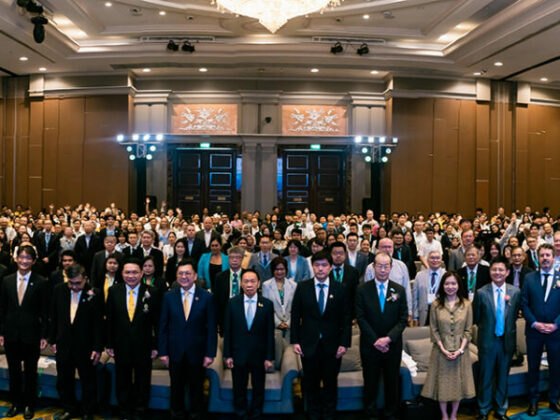Maintaining the balance of the Earth’s climate systems, the ocean is responsible for absorbing as much as 30% of human-produced carbon dioxide (CO2). Within the framework of the United Nations Decade of Ocean Science for Sustainable Development 2021-2030 (the ‘Ocean Decade’), Challenge 5: “Unlock Ocean-based Solutions to Climate Change” emerges as a pivotal initiative to better understand the complex relationship between the ocean and climate dynamics across all geographical regions and scales.
Today, no part of the ocean has completely escaped the impact of increased global warming, ocean acidification, and increased deoxygenation – together commonly referred to as climate change’s ‘deadly trio’. In fact, without the ocean, atmospheric CO2 would be close to double the preindustrial value and warming would be well over the 2°C goal set by the global community, with severe consequences on marine ecosystems, coastal erosion and climate-related events affecting communities globally.
Urgent and concerted global action is imperative to mitigate these impacts and preserve the health of the ocean and the planet. The integration of innovative ocean-based solutions, such as offshore wind energy and sustainable aquaculture, is becoming crucial in reducing carbon emissions and fostering a more resilient marine environment.
Ocean Decade Challenge 5 focuses on providing solutions to mitigate, adapt to, and build resilience against the effects of climate change. This initiative aims to increase our understanding of the ocean-climate nexus, generating knowledge and solutions through maintaining and enhancing sustained ocean observations and modeling. Its goal is to reach improved services, including predictions for the ocean, climate, and weather, for a more sustainable and adaptive future by 2030.
As part of the Ocean Decade Vision 2030, Working Group 5 has been established to guide Challenge 5’s momentum and draft its strategic ambition. It is led by co-chairs Dr. Carol Robinson, Professor of Marine Sciences at the University of East Anglia, UK, and Dr. Christopher Sabine, Professor of Oceanography at the University of Hawai‘i at Mānoa, USA. It comprises 16 other expert members from diverse fields ranging from law, ecology, fisheries, risk and resilience, and climate change. They seek to provide essential data, knowledge, infrastructure, personnel capacity, governance frameworks, and societal engagement to facilitate mitigation, adaptation, and resilience-building efforts against climate change’s impacts on ocean systems.
Co-chairs Christopher Sabine and Carol Robinson are leading experts in carbon cycling and oceanography. Sabine’s research focuses on understanding the global carbon cycle, the role of the ocean in absorbing CO2, and ocean acidification. Robinson specializes in microbial oceanography, particularly in marine carbon and oxygen cycling, and advocates for international collaborative research, mentoring of Early Career Ocean Professionals (ECOPs), and societal engagement in ocean policy.


Robinson underscored the significance of the Vision 2030 process in strengthening the ocean-climate nexus: “The relevance of the Vision 2030 process and this Working Group in particular is to stimulate a collaborative global effort to reduce emissions and develop and evaluate ocean-based approaches to mitigate, and sustainably adapt to unavoidable climate change.”
Success for Challenge 5 by the end of the Ocean Decade relies on filling key gaps in science and knowledge, understanding user needs, and exploring effective co-design strategies. “This includes achieving improved climate predictions and modeling capabilities, enhanced ocean observations, accessible knowledge and data, widespread understanding of the ocean’s role in climate regulation, and increased climate-smart investments in ocean and nature-based solutions,” explained Sabine.
To prevent global temperatures from rising by more than 1.5˚C, concerted and proactive efforts to dramatically reduce the burning of fossil fuels, while equipping societies to adapt to and be resilient to unavoidable levels of climate change, are required.
However, despite significant progress, the ocean community often finds itself facing barriers including limited resources, technological constraints, and the need for greater international cooperation. To overcome these obstacles, we need to consolidate our efforts globally and collaborate, prioritizing the needs of diverse stakeholders – from governments and industries to scientists and local communities – all seeking open access to data, practical tools, and innovative solutions.
To address Challenge 5, the Working Group encourages collaborative platforms, emphasizing the importance of comprehensive oceanographic and climate data, Indigenous knowledge, and infrastructure development. They recommend forging and strengthening partnerships, securing resources, building capacity, developing technology, and integrating with other Ocean Decade Challenges.
2030년을 향한 해양 10년의 혁신적 여정
The consolidated version of the Challenge 5 White Paper was presented and debated during ‘Session 1: Science and Solutions for a Clean, Healthy and Resilient Ocean’ at the 2024 Ocean Decade Conference in Barcelona, a pivotal event for the Vision 2030 process. The outcomes of discussions will feed into the final version of the documents that will be available soon.
Click here to meet Working Group 5 and find out more about the Vision 2030 process.
자세한 내용은 문의하시기 바랍니다:
비전 2030 팀(vision2030@unesco.org)
***
해양 10 년 소개 :
2017년 유엔 총회에서 선포된 유엔 지속 가능한 개발을 위한 해양 과학 10년 (2021-2030)('해양 10년') 은 해양 과학 및 지식 생성을 촉진하여 해양 시스템의 쇠퇴를 역전시키고 이 거대한 해양 생태계의 지속 가능한 개발을 위한 새로운 기회를 촉진하고자 합니다. Ocean Decade의 비전은 '우리가 원하는 바다에 필요한 과학'입니다. Ocean Decade는 해양 시스템에 대한 더 나은 이해를 달성하기 위해 해양 과학의 발전을 가속화하고 활용하는 데 필요한 과학 지식과 파트너십을 개발하고 2030 의제를 달성하기 위한 과학 기반 솔루션을 제공하기 위해 다양한 분야의 과학자와 이해 관계자를 위한 소집 프레임워크를 제공합니다. 유엔 총회는 유네스코의 정부간 해양학 위원회(IOC)에 10년의 준비와 실행을 조정하도록 명령했습니다.
IOC/유네스코 소개:
유네스코 정부간해양학위원회(IOC/UNESCO)는 해양, 해안 및 해양 자원의 관리를 개선하기 위해 해양 과학 분야의 국제 협력을 촉진합니다. IOC는 150개 회원국이 역량 개발, 해양 관측 및 서비스, 해양 과학 및 쓰나미 경보 분야의 프로그램을 조정하여 협력할 수 있도록 지원합니다. IOC의 활동은 평화와 지속 가능한 발전의 토대인 경제 및 사회 발전의 핵심인 지식과 역량을 개발하기 위해 과학의 발전과 그 응용을 촉진하는 유네스코의 사명에 기여합니다.


